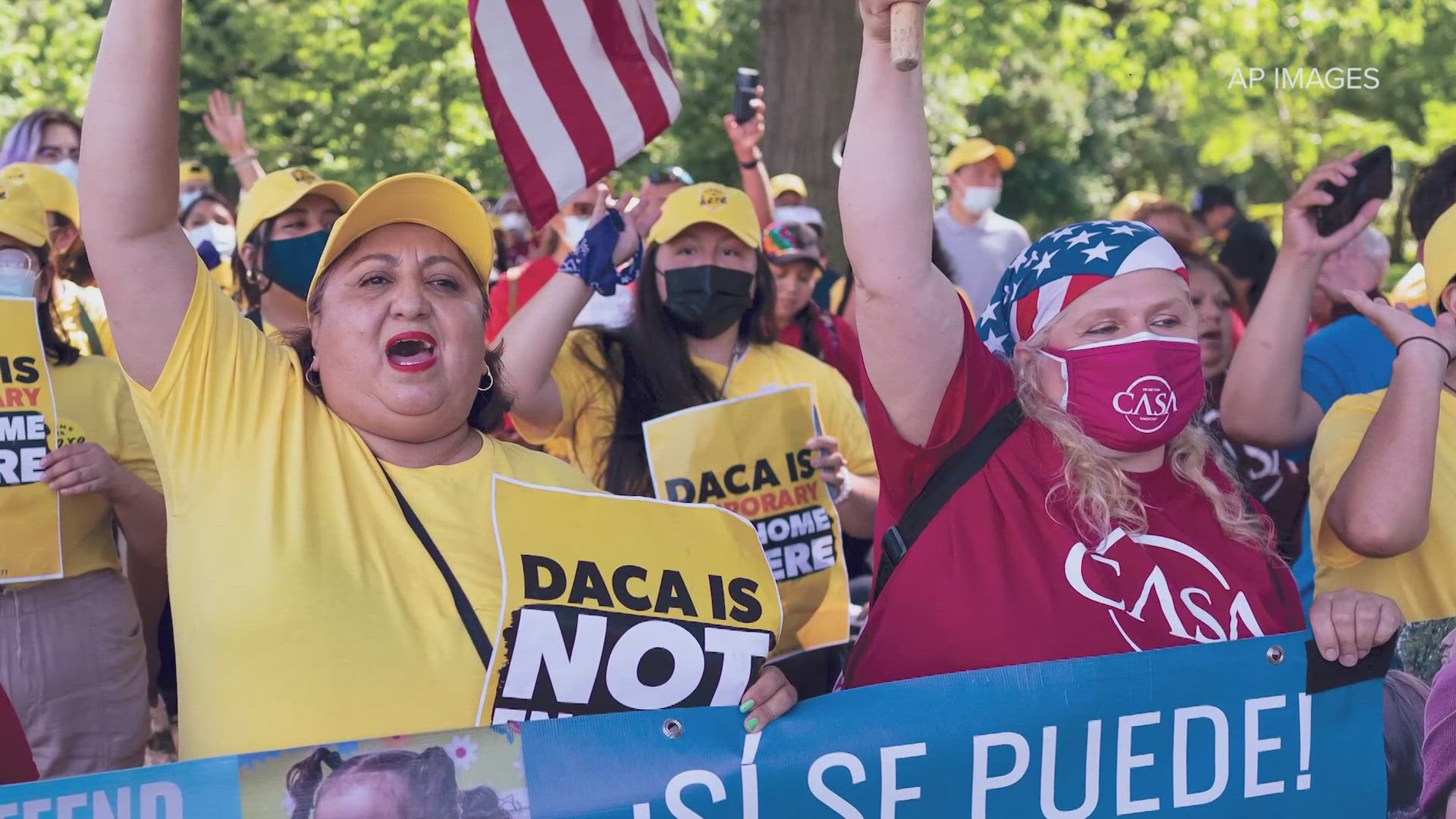DALLAS — The Deferred Action for Childhood Arrivals (DACA) policy continues to come under legal attack.
At stake in the long legal battle playing out at the 5th U.S. Circuit Court of Appeals is the future of about 535,000 people who have long-established lives in the U.S., even though they don't hold citizenship or legal residency status and they could eventually be deported.
“Individuals who become civil engineers, who become doctors, who become lawyers,” said Eric Cedillo, Attorney and Clinical Professor of Law at SMU.
Cedillo represents dozens of DACA recipients. DACA stands for the Deferred Action for Childhood Arrivals Act.
The program shields nearly 600,000 undocumented immigrants brought to the U.S. as children from deportation and allows them to work in the U.S. legally.
“I have some folks who have been DACA recipients, of course, since 2012. So, it's a situation where they've been yearly having to renew their applications, having to expend money to make that happen,” said Cedillo.
There is a fear that the program could go away after Texas filed a lawsuit against its regulation and a U.S. District Court judge ruled DACA unlawful in 2022. The case has gone back and forth from the U.S. District Court the Fifth Circuit of Appeals.
Thursday, the Fifth Circuit of Appeals heard oral arguments on the issue.
“We’re challenging DACA’s rule,” said Joseph Mazzara, Texas Attorney General Special Counsel.
Mazzara argued the Obama and Biden administrations exceeded their authority in regulating DACA and that the program injures the state by driving up costs.
“We know there’s a pocketbook cost to Texas in regard to education and healthcare,” said Mazzara.
Brian Boynton argued the opposite.
“Fiscal injuries that Texas points to have no direct tie to DACA,” said Boynton, U.S. Department of Justice’s Principal Deputy Assistant Attorney General. “Any person in the state of Texas, citizens or non-citizens are entitled to the same types of services, emergency healthcare services and public K-12 education.”
Attorney Nina Perales also sided with Boynton.
“It’s been widely understood that DACA recipients, overall, provided a net benefit to their states,” said Perales, MALDEF Vice President of Litigation.
Mazzara also cited a survey that showed if DACA ended, many would leave the country. It was an argument that judges questioned.
“People that are lifelong residents of Texas, if they lose the program, they’re going to go back to countries that they’ve never lived in. Is that the logic,” asked one Fifth Circuit of Appeals judge.
Texas Attorney General Ken Paxton released the following statement.
“Today, Texas argued our case against DACA in the U.S. Court of Appeals for the Fifth Circuit. We already prevailed in 2022 when the court agreed that DACA was created unlawfully by the Obama Administration. Because of our lawsuit, the federal government has been prohibited from approving first-time DACA applications for years.
Argument today concerns the Biden-Harris Administration’s decision to formalize DACA through notice and comment rulemaking. The court was receptive to our arguments that DACA continues to violate the rule of law and the separation of powers requirement enshrined by the United States Constitution. I have fought every step of the way to uphold the Constitution against illegal workarounds and look forward to defeating DACA—in its entirety—permanently.”
Many do not expect a ruling on the case anytime soon.
While arguments continue, current DACA recipients can renew their application, but first-timers cannot apply. It’s what many call stuck in legal limbo.
“We need to have comprehensive immigration reform. Congress needs to act,” said Cedillo.
The panel hearing the case consists of Jerry Smith, nominated to the 5th Circuit by former President Ronald Reagan; Edith Brown Clement, nominated by former President George W. Bush; and Higginson, nominated by Obama.

